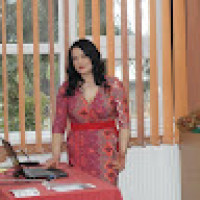 Baterel
Baterel
20 august 2013, 13:30
compunere despre reciclare
Învăţământ primar - Resursele elevilor - Creaţii literare - Clasa a 4-a;
Învăţământ gimnazial - Discipline opţionale - Clasa a 5-a;
Review-uri (0)
0 stele
Adăugaţi un review
Nu există niciun review
Creaţii literare recomandate de comunitatea Didactic.ro
Structura anului școlar 2024 - 2025 - calendar
Învăţământ primar - Resursele elevilor - Creaţii literare - Clasa 1; Clasa a 2-a; Clasa a 3-a; Clasa a 4-a; Clasa pregatitoare;
![]() MoldovanMonicaMaria | Scoala Gimnaziala Nr.93 "Emil Racovita"
MoldovanMonicaMaria | Scoala Gimnaziala Nr.93 "Emil Racovita"
0 comentarii
Accesul la educație, tehnologie și oportunități în comparație cu țările subdezvoltate
Învăţământ primar - Resursele elevilor - Creaţii literare - Clasa 1; Clasa a 2-a; Clasa a 3-a; Clasa a 4-a; Clasa pregatitoare;
liavera2008 | Scoala Gimnaziala "Alexandra Nechita" Vaslui
0 comentarii
Învăţământ primar - Resursele elevilor - Creaţii artistice - Clasa 1; Clasa a 2-a; Clasa a 3-a; Clasa a 4-a; Clasa pregatitoare;
![]() bianca_badita | Scoala Gimnaziala Sosdea
bianca_badita | Scoala Gimnaziala Sosdea
0 comentarii


























Comentarii (1)
Homeschooling or homeschool (also called home education or home based learning) is the education of children at home, typically by parents or by tutors, rather than in other formal settings of public or private school. Although prior to the introduction of compulsory school attendance laws, most childhood education occurred within the family or community,[1] homeschooling in the modern sense is an alternative in developed countries to attending public or private schools. Homeschooling is a legal option for parents in many countries, allowing them to provide their children with a learning environment as an alternative to public or private schools outside the individual's home.
Parents cite numerous reasons as motivations to homeschool their children. The three reasons that are selected by the majority of homeschooling parents in the United States are concern about the school environment, to provide religious or moral instruction, and dissatisfaction with academic instruction at public and private schools. Homeschooling may also be a factor in the choice of parenting style. Homeschooling can be an option for families living in isolated rural locations, living temporarily abroad, to allow for more traveling, while many young athletes and actors are taught at home. Homeschooling can be about mentorship and apprenticeship, where a tutor or teacher is with the child for many years and then knows the child very well. Recently, homeschooling has increased in popularity in the United States, with the percentage of children 5-17 who are homeschooled increasing from 1.7% in 1999 to 2.9% in 2007.[2]
Homeschooling can be used as a form of supplementary education, a way of helping children learn, in specific circumstances. For instance, children that attend downgraded schools can greatly benefit from homeschooling ways of learning, using the immediacy and low cost of the Internet. As a synonym to e-learning, homeschooling can be combined with traditional education and lead to better and more complete results. Homeschooling may also refer to instruction in the home under the supervision of correspondence schools or umbrella schools. In some places, an approved curriculum is legally required if children are to be home-schooled.[3] A curriculum-free philosophy of homeschooling may be called unschooling, a term coined in 1977 by American educator and author John Holt in his magazine Growing Without Schooling. In some cases, a liberal arts education is provided using the trivium and quadrivium as the main model.
Autentificaţi-vă pe site pentru a putea publica un comentariu.